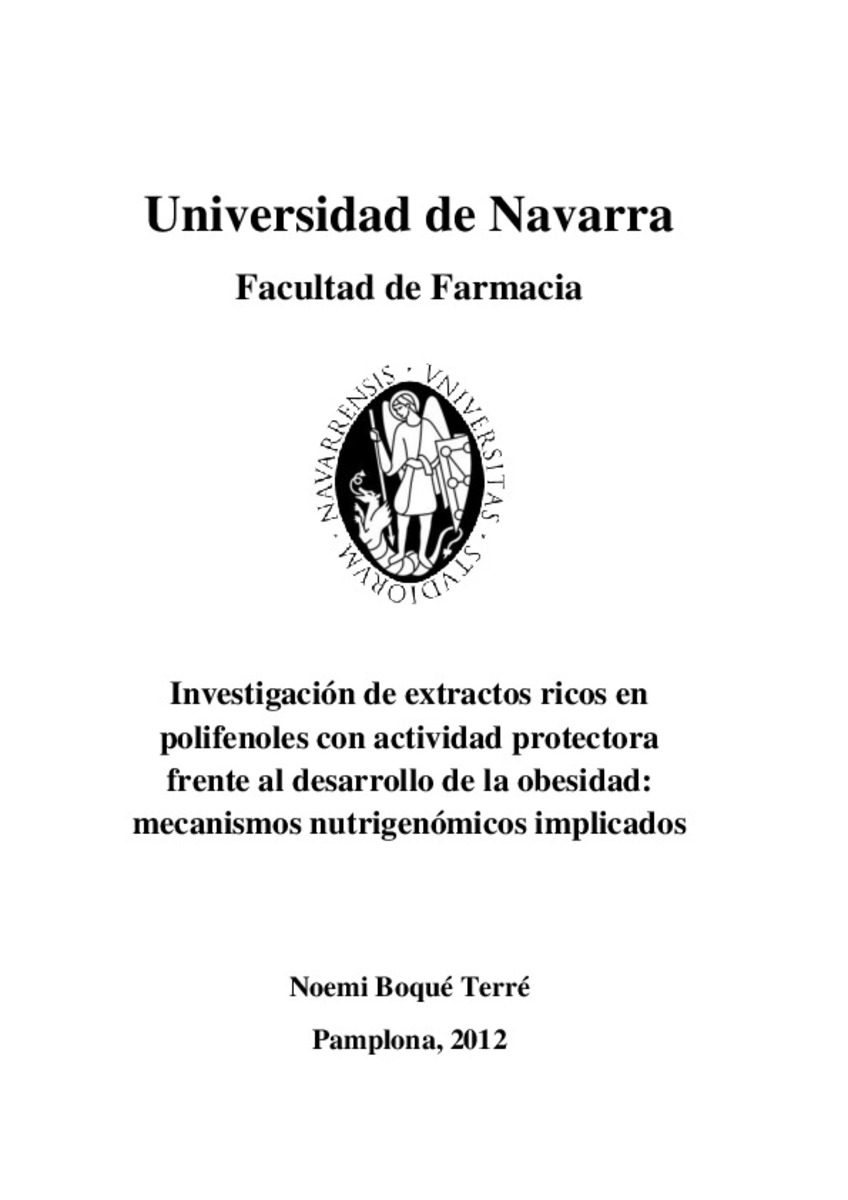Investigación de extractos ricos en polifenoles con actividad protectora frente al desarrollo de la obesidad: mecanismos nutrigenómicos implicados
Palabras clave :
Gene expression
Adipocyte
Apple
Materias Investigacion::Farmacia
Fecha de publicación :
2014
Fecha de la defensa:
27-abr-2012
Editorial :
Servicio de Publicaciones de la Universidad de Navarra
Cita:
BOQUÉ TERRÉ, Noemí. “Investigación de extractos ricos en polifenoles con actividad protectora frente al desarrollo de la obesidad: mecanismos nutrigenómicos implicados”. Campión Zabalza, Javier y Martínez Hernández, J. Alfredo (dir.). Tesis doctoral. Universidad de Navarra, Pamplona, 2012
Aparece en las colecciones:
Estadísticas e impacto
0 citas en

0 citas en

Los ítems de Dadun están protegidos por copyright, con todos los derechos reservados, a menos que se indique lo contrario.







